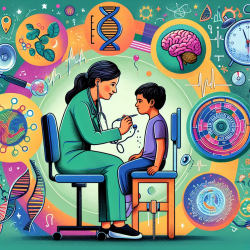The world of online mental healthcare is evolving rapidly, and the integration of Artificial Intelligence (AI) is at the forefront of this transformation. The recent research article, "Examining the role of AI technology in online mental healthcare: opportunities, challenges, and implications, a mixed-methods review," provides invaluable insights into how AI can be harnessed to improve mental health outcomes. This blog will explore key findings from the research and offer practical tips for practitioners looking to enhance their skills and services through AI.
Key Findings from the Research
The mixed-methods review identified several AI applications in online mental healthcare, including:
- Triage: AI can help prioritize patients based on the severity of their symptoms, ensuring timely and appropriate care.
- Psychotherapy Delivery: AI-powered chatbots and virtual agents can deliver cognitive behavioral therapy (CBT) and other therapeutic interventions effectively.
- Treatment Monitoring: AI tools can track patient progress and adjust treatment plans in real-time, enhancing the personalization of care.
- Therapy Engagement Support: Intelligent notifications and environment sensing can help maintain patient engagement and reduce dropout rates.
- Prediction of Treatment Outcomes: AI can predict treatment response, adherence, and dropout rates, allowing for more targeted and effective interventions.
Implementing AI in Your Practice
As a practitioner, integrating AI into your online therapy services can significantly enhance the quality and accessibility of care. Here are some practical steps to get started:
- Stay Informed: Attend conferences, webinars, and read publications on the latest AI advancements in mental healthcare. Networking with peers can also provide valuable insights.
- Choose the Right Tools: Select AI tools that are evidence-based and have demonstrated effectiveness in clinical settings. Look for solutions that are user-friendly and integrate seamlessly with your existing systems.
- Train Your Team: Ensure that your team is well-versed in using AI tools. Provide training sessions and resources to help them understand the benefits and limitations of AI in therapy.
- Monitor and Evaluate: Continuously monitor the performance of AI tools and their impact on patient outcomes. Use data-driven insights to make necessary adjustments and improvements.
- Engage with Patients: Educate your patients about the role of AI in their treatment. Address any concerns they may have and highlight the benefits of AI-enhanced therapy.
Encouraging Further Research
While the current evidence is promising, the research also highlights the need for more robust studies to validate the effectiveness of AI in online mental healthcare. As a practitioner, you can contribute to this growing field by participating in research studies, collaborating with academic institutions, and sharing your experiences and outcomes.
To read the original research paper, please follow this link: Examining the role of AI technology in online mental healthcare: opportunities, challenges, and implications, a mixed-methods review.










